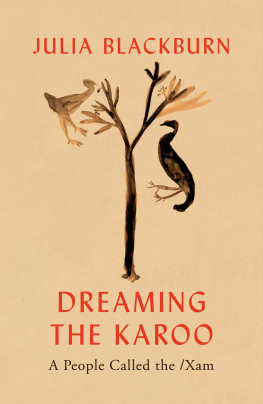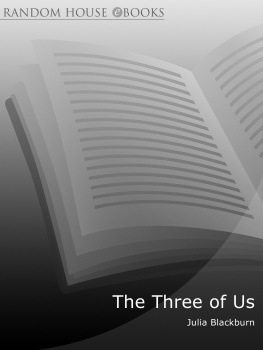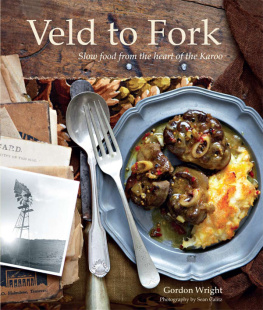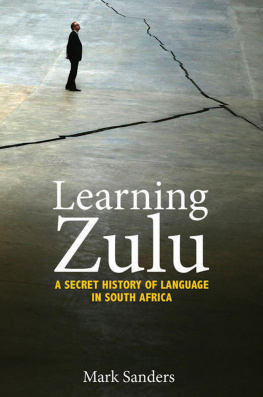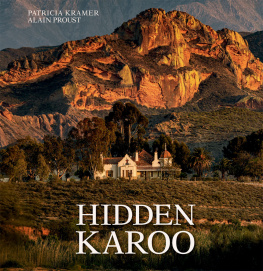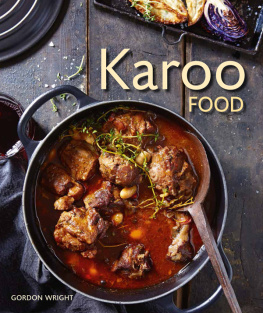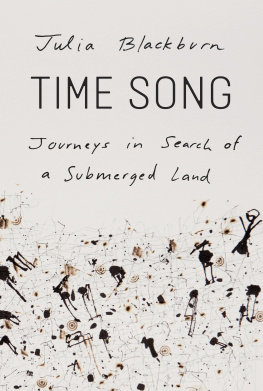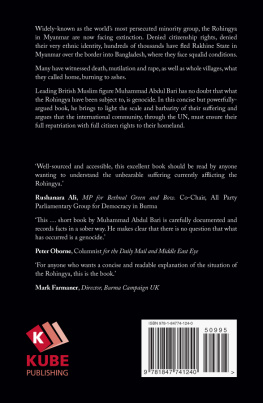Julia Blackburn - Dreaming the Karoo: A People Called the /Xam
Here you can read online Julia Blackburn - Dreaming the Karoo: A People Called the /Xam full text of the book (entire story) in english for free. Download pdf and epub, get meaning, cover and reviews about this ebook. City: New York, year: 2022, publisher: Jonathan Cape, genre: Detective and thriller. Description of the work, (preface) as well as reviews are available. Best literature library LitArk.com created for fans of good reading and offers a wide selection of genres:
Romance novel
Science fiction
Adventure
Detective
Science
History
Home and family
Prose
Art
Politics
Computer
Non-fiction
Religion
Business
Children
Humor
Choose a favorite category and find really read worthwhile books. Enjoy immersion in the world of imagination, feel the emotions of the characters or learn something new for yourself, make an fascinating discovery.
- Book:Dreaming the Karoo: A People Called the /Xam
- Author:
- Publisher:Jonathan Cape
- Genre:
- Year:2022
- City:New York
- Rating:5 / 5
- Favourites:Add to favourites
- Your mark:
Dreaming the Karoo: A People Called the /Xam: summary, description and annotation
We offer to read an annotation, description, summary or preface (depends on what the author of the book "Dreaming the Karoo: A People Called the /Xam" wrote himself). If you haven't found the necessary information about the book — write in the comments, we will try to find it.
A spellbinding new book by the much-acclaimed writer, a journey to South Africa in search of the lost people called the /Xam - a haunting book about the brutality of colonial frontiers and the fate of those they dispossess.
In spring 2020, Julia Blackburn travelled to the Karoo region of South Africa to see for herself the ancestral lands that had once belonged to an indigenous group called the /Xam.
Throughout the nineteenth century the /Xam were persecuted and denied the right to live in their own territories. In the 1870s, facing cultural extinction, several /Xam individuals agreed to teach their intricate language to a German philologist and his indomitable English sister-in-law. The result was the Bleek-Lloyd Archive: 60,000 notebook pages in which their dreams, memories and beliefs, alongside the traumas of their more recent history, were meticulously recorded word for word. It is an extraordinary document which gives voice to a way of living in the world which we have all but lost. All things were once people, the /Xam said.
Blackburns journey to the Karoo was cut short by the outbreak of the global pandemic, but she had gathered enough from reading the archive, seeing the /Xam lands and from talking to anyone and everyone she met along the way, to be able to write this haunting and powerful book, while living her own precarious lockdown life. Dreaming the Karoo is a spellbinding new masterpiece by one of our greatest and most original non-fiction writers.
Julia Blackburn: author's other books
Who wrote Dreaming the Karoo: A People Called the /Xam? Find out the surname, the name of the author of the book and a list of all author's works by series.

